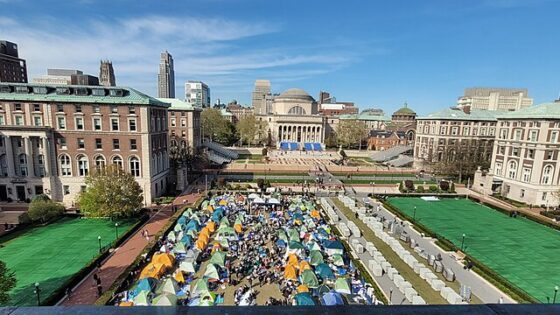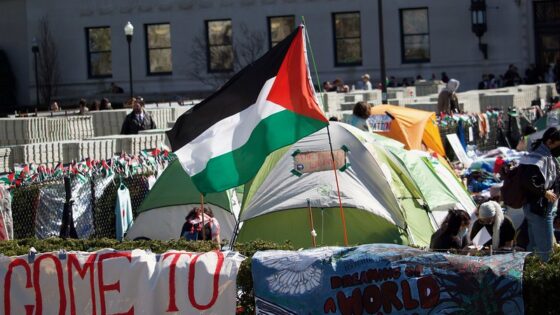Columbia launched the first-ever Center for Palestine Studies in the United States on Thursday night, and organizers said that, despite limited funds, they are pushing forward.
The center, which will run out of the University’s Middle East Institute in Knox Hall, was created by a group of faculty with the goal of promoting and advancing Palestine studies in a wide range of subjects, from politics to the arts.
“Columbia has one of the most distinguished faculty of people that work on Palestine studies, and it was some sort of a logical outgrowth of that community,” Brinkley Messick, co-director of the Center for Palestine Studies, said.
The Middle East Institute is over 50 years old on campus, but this center is the first of its kind.
The center was also created in honor of former professor Edward Said, who taught at Columbia for 40 years before his death in 2003 and is widely known for his book “Orientalism.”
“He was one of the most prominent scholars of the late 20th century in literary criticism and public intellect, and one of his main interests was the question of Palestine,” Messick said. “He drew people to the University in his day, and that legacy is still alive, and that too fed into the realization that there was a very substantial community of scholars here that could well benefit from and contribute to a new center.”
The goals of the center, which has been in discussion since late 2009, focus on the promotion of scholarship in Palestinian history, culture, arts, and literary studies. “One of the missions of the center is to inform people about the Palestinians in an academic setting,” said Bashir Abu-Manneh, an English professor at Barnard.
The official launch on Thursday attracted a full lecture hall of students, professors, and even some guests from outside of Columbia.
“It is monumental to have a space at Columbia University that represents the voice of a people that do not have their own. It is important to come to these spaces so that we can lend our voices,” said Lawrence Cobb-El, executive director of nonprofit School Streets and Beyond.
Although the center is now official, the details of its funding are not yet clear-a fact that caused concern among attendees at Thursday’s event.
“I’m hoping that they encourage funding, especially for writers outside of the institution,” said Sousan Hammad, a journalist from Palestine. “They should allocate resources to people who normally wouldn’t have access to it.”
Rashid Khalidi, co-director of the center, said in a speech at the launch that the center has little funding thus far and is soliciting donations.
Students, too, expressed concerns over funding.
“The center is a really big deal since it is the first of its kind, although I’m not sure how it will work out because of the lack of funding,” Kati Fossett, CC ’11, said.
Some attendees hoped to bring more attention to the arts through the center. “I hope they encourage Palestinian writers and artists. They should connect with Palestinians outside the academic circle,” Suneela Mubayi, CC ’07, said.
Khalidi said that they are just starting to implement programs. “Our activities, that are almost all in the planning stage, include lectures, conferences, art screenings, and developing archives.”
For some students, the center is an opportunity to emphasize Palestinian studies in the classroom.
“As a political science student, I’m really excited,” Samira Khalifa, CC ’11, said. “There aren’t that many courses that have anything to do with Palestinian struggles.”
Professors from some of the University’s other centers said that the creation of a Palestine-specific organization is an important step for academia at Columbia in general.
“I think that this is a significant moment for Columbia University, if only because the lack of knowledge about Palestinians and Palestine is pervasive,” Yinon Cohen, a professor in the Institute for Israel and Jewish Studies, wrote in an email. “It is, I believe, precisely a center like this that can begin changing this reality.”
“It is so groundbreaking for the University as a whole,” said Aviva Buechler, BC ’11 and president of Columbia/Barnard Hillel. “With their mission of studying the history, culture, and politics of Palestine, I think it will really be a great experience for students to take part in.”
“I do hope to see some real collaboration between the Center for Palestine Studies and the Institute for Israel and Jewish Studies,” Buechler said.
Amber Tunnell contributed reporting.
http://www.columbiaspectator.com/2010/10/08/columbia-launches-center-palestine-studies




